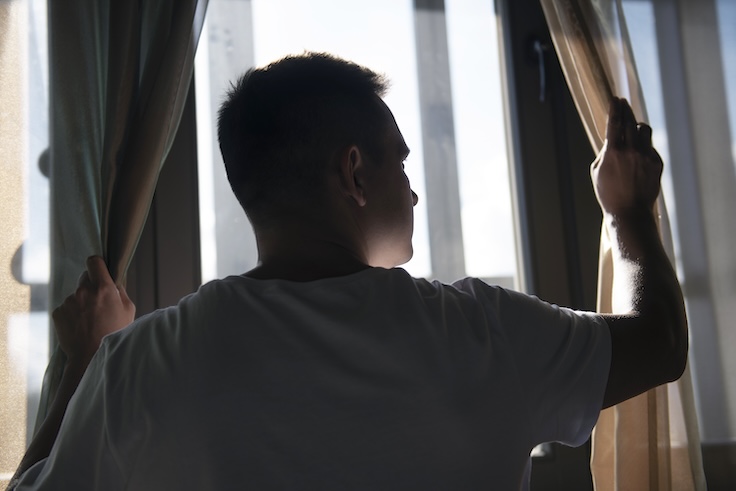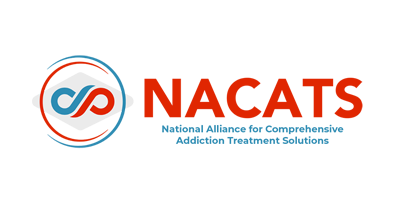
The role of trauma in opioid addiction is strong, but how can medication-assisted treatment (MAT) help? By utilizing medications such as Suboxone or Sublocade, the mind becomes free to explore fearful and traumatic memories, making them treatable.
Any moment can become a trauma. In 2023, over 60,000 cases of domestic violence occurred in Tennessee. Events like these can change someone’s life and view of the world in an instant.
At ReVIDA® Recovery, we understand how trauma can fuel an opioid use disorder. Let’s talk about the role of trauma in opioid addiction and how MAT can help the healing process.
Table of Contents
When Pain Fuels the Cycle: Understanding the Link Between Trauma and Addiction
Trauma and addiction are deeply intertwined, as many who face substance use disorders have experienced significant emotional, physical, or psychological trauma in their lives. Experiencing trauma leaves a lasting impression on the mind and body. This can stem from childhood abuse, a serious car accident, seeing combat, domestic violence, or other uncontrollable situations. In order to feel something other than pain and fear, it becomes a ritual to reach for substances such as opioids to become numb or feel something positive.
Studies have shown that children who go through adverse childhood experiences (ACEs) are more likely to develop a substance use disorder. Examples of ACEs include:
- Physical, mental, or emotional abuse
- Neglect
- Poverty or homelessness
- Divorce or separation
- Parental incarceration
- Witnessing substance use
- Having a parent or sibling with a mental health disorder
The more severe or the higher number of ACEs you experience, the greater the likelihood of a substance use disorder. However, there is no direct correlation. Those with severe ACEs are more likely to be diagnosed with depression, which in turn leads to substance use as a way to self-medicate.
Why Trauma Often Leads to Opioid Addiction – And What You Can Do About It
Opioids specifically are prescribed to manage physical pain, often in those who have undergone major surgery, broken a bone, or are fighting cancer. When taken illicitly, not only does physical pain become numb, but so does emotional pain. The brain is flooded with dopamine, one of the body’s feel-good chemicals. First, opioids attach to the receptors in the brain. This causes the inhibition of gamma-aminobutyric acid (GABA), which normally suppresses the activity of dopamine neurons. Opioids cause a rush of dopamine due to this inhibition, resulting in euphoria and relaxation.
The feeling of taking opioids causes a sense of freedom, as past traumas fade into the background, even just for a few minutes. Trauma is a burden that weighs heavily on the body, which is why seeking opioids serves as a relief from the pain. As with any substance use disorder, there are options available to stop taking opioids and develop healthy coping skills. As long as you want it, it is possible to recover.

Identifying the Hidden Symptoms of Trauma in Opioid Addiction
Living with trauma is not always expressed in obvious ways. It can show up as emotional numbness, self-isolation, or difficulty trusting others. When opioids are introduced, they temporarily block these feelings, reinforcing the cycle of avoidance and dependence. Common hidden symptoms of trauma and opioid addiction include:
- Emotional detachment or numbness
- Flashbacks, nightmares, or intrusive memories
- Hypervigilance
- Insomnia
- Avoiding certain people or places
- Difficulty trusting others
- Difficulty concentrating or nodding in and out of consciousness during the day
- Flu-like symptoms constantly
- Changing or cancelling social plans on a regular basis
Recognizing these symptoms is crucial, not only for treatment professionals but also for loved ones who want to support the recovery process. If trauma remains unaddressed, it can continue to undermine progress in opioid use disorder treatment. A compassionate, trauma-informed approach is key to achieving long-term healing and stability.
Healing the Whole Person: The Power of Trauma-Informed Care in Addiction Recovery
Trauma-informed care is not a treatment in itself — it’s an approach to treatment that acknowledges the profound impact trauma has on your mental, emotional, and physical well-being. In the context of opioid use disorder recovery, this means creating an environment that feels safe, supportive, and empowering for those with trauma histories. Instead of focusing solely on stopping substance use, trauma-informed care looks at the whole person, including their experiences, their strengths, and their need for connection and understanding.
In layman’s terms, trauma-informed care typically includes individual and group therapies. It also involves mindfulness practices, body-conscious therapies, and peer support, all of which help restore a sense of safety and resilience. By treating both opioid use disorder and the trauma that has been driving it, you are better equipped to develop healthy coping strategies, build meaningful relationships, and move forward with a renewed sense of purpose.
What makes trauma-informed care especially powerful is its recognition that healing is not a linear process. It is okay to experience a return to use or a wave of anxiety related to your trauma. The goal is to give you the skills to bounce back and make your recovery stronger than ever.
Finding Relief on Two Fronts: How Medication-Assisted Treatment Supports Opioid Recovery and Trauma Healing
If you are living with an opioid use disorder, especially if you have co-occurring trauma, medication-assisted treatment (MAT) may be a life-saving part of recovery. MAT combines the use of Suboxone or Sublocade with outpatient therapies and counseling. These medications help reduce cravings, minimize withdrawal symptoms, and stabilize brain chemistry, allowing you to focus on healing without being overwhelmed by the physical stress of detox.
MAT isn’t just about managing withdrawal, as it also creates a window of emotional clarity where trauma can be safely addressed. Once your body is no longer in constant fight-or-flight mode due to withdrawal or intense cravings, you will be more able to engage meaningfully in therapy. This can be especially helpful if PTSD is present or complex trauma, as MAT provides a foundation of stability from which deeper emotional work can be done.
It’s important to note that MAT is not “trading one addiction for another.” In a properly monitored, therapeutic setting, MAT is a medically sound and research-backed intervention that has been shown to reduce the rate of returning to use, prevent future overdoses, and improve overall recovery outcomes. Combined with trauma-informed therapy, MAT supports recovery on both a physiological and psychological level, helping people reclaim their lives from the dual grips of opioid use disorders and trauma.
For many, MAT acts as the bridge between mere survival and genuine healing. It helps them regain control over their substance use while gradually working through the pain and memories that caused it initially. With time, support, and a comprehensive treatment plan, you will find freedom from both the physical dependence on opioids and the emotional burden of your trauma.

Getting Started with MAT in the Appalachian Area
One of the biggest barriers when it comes to seeking help for opioid use disorders is feeling as though you are so broken that you cannot be “fixed.” The good news is that medication-assisted treatment could be the piece of the puzzle that has been missing from your recovery journey.
Trauma responses are not one-size-fits-all, and treatment will take time and a safe environment for you to open up. With MAT, you will gain the mental clarity to address and desensitize past traumas and begin to move forward toward a brighter future. It is never too late to begin – all it takes is that first step towards freedom.
If you or someone you love is living with an opioid use disorder as well as unresolved trauma, we are here to help. ReVIDA® Recovery is a medication-assisted treatment clinic that also provides outpatient therapy for all who are managing the effects of opioids. Our facilities serve the Eastern Tennessee and Western Virginia areas, connecting rural towns to opioid use support. We also accept Medicaid and offer scholarship programs to help cover the cost of treatment. Call us today at 423-631-0432 to learn more about our program offerings.
Reclaim your life.








